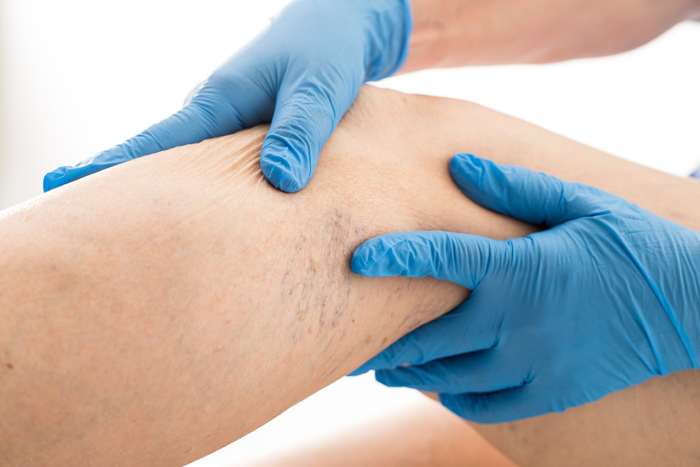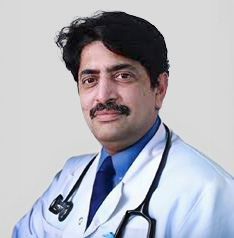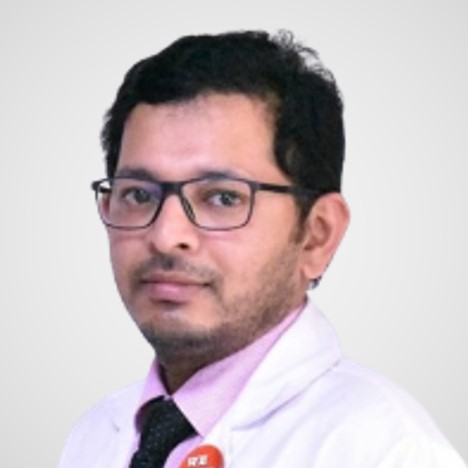Venous Insufficiency Treatment in Koramangala, Bangalore
Veins carry deoxygenated blood from the organs in our body to our heart. Several diseases can disrupt the functioning of these veins.
Some common venous disorders include chronic venous insufficiency, deep vein thrombosis, venous ulcers and varicose and spider veins. There are various methods of treating venous diseases, including surgery.
You can opt for venous diseases treatment in Bangalore. Or you can search for a venous diseases specialist near me.
What do we need to know about venous diseases?
There can be a lot of reasons for venous diseases. They can occur because of damage to the walls of the blood vessels or the valves. They can be painful or they can cause little or no amount of pain as well. Depending on the severity, a doctor can suggest many methods of treating venous diseases.

What are the types of venous diseases?
There are many types of venous diseases. Here are some of them:
- Chronic Venous Insufficiency: In this condition, veins have difficulty in sending blood from the limbs back to the heart. There can be numerous reasons for this insufficiency.
- Deep Vein Thrombosis: It is a condition in which blood clots form in the veins deep inside the body. They can occur anywhere in the body, but the most common sites are the thighs or the lower legs.
- Ulcers: These are wounds that occur due to the dysfunctionality of veins. They usually affect areas below the knees or on the inner side of the ankles.
- Varicose and Spider Veins: In this case, veins become twisted and enlarged. They can be painful.
What are the symptoms of venous diseases?
Here are some symptoms you may witness:
- Chronic Venous Insufficiency: Swelling in the ankles and legs, pain, itchy or weak legs or tightness in the calves
- Deep Vein Thrombosis: Swelling in the feet, affected areas becoming warmer or paler than the rest of the body
- Ulcers: Flaking, swelling, itching, inflammation and discharge
- Varicose and Spider Veins: Prominent and dark veins, burning, throbbing, itching or a heavy feeling in the legs
What are the causes of venous diseases?
There are several causes of these diseases. They include:
- Chronic Venous Insufficiency: The primary reason for this is a blockage in the forward flow of blood due to blood clots or varicose veins.
- Deep Vein Thrombosis: Injuries, any surgery leading to a blood clot, reduced movement or certain medicines can cause this.
- Ulcers: Reduced flow of blood, trauma, high blood pressure or obesity can cause venous ulcers.
- Varicose and Spider Veins: Damaged valves can cause varicose veins. If there is any damage in the valves, they tend to stretch and twist.
When do you need to see a doctor?
If you notice any of the symptoms mentioned above, seek help from a doctor.
You can request an appointment at Apollo Spectra Hospitals, Koramangala, Bangalore.
Call 1860 500 2244 to book an appointment.
What are the possible risk factors or complications?
These include:
- In some venous diseases, age becomes a crucial factor. The risk increases with age
- Family history
- Sitting for long periods can also restrict blood flow
- Smoking can also affect veins.
Complications
Some complications include:
- Coughing up blood
- Dizziness
- Blood clots
- Bleeding
- Ulcers
- Skin changes
- Secondary lymphedema
What are the treatment options?
- Chronic Venous Insufficiency: For this, compression stockings could help or your doctor may prescribe medications as well. Different surgeries could also help.
The surgeries can repair damaged veins or remove them. These include laser surgery, sclerotherapy and catheter procedure for large veins. - Deep Vein Thrombosis (DVT): The doctor can suggest compression stockings, medications, or surgery.
The DVT surgery is suitable only in cases where blood clots are significantly huge. - Ulcers: Doctors may suggest antibiotics and compression therapy. In this case, you have to apply a compression bandage on the affected areas. The pressure improves circulation and can reduce symptoms.
- Varicose and Spider Veins: Compression stockings can help treat varicose veins. Apart from them, various surgical methods can help.
Surgical procedures include laser surgery, sclerotherapy, endoscopic vein surgery, high ligation, and vein stripping.
You can consult venous diseases doctors in Koramangala as well.
Conclusion
Multiple factors can cause venous diseases. Treatment gets a lot easier if you have the support of an experienced doctor. If you take proper care and rest and do as the doctor suggests, you will recover pretty smoothly.
Regular exercise, avoiding smoking and an overall healthy lifestyle can help prevent venous diseases. If you can, you should avoid sitting in one position for too long as it affects blood circulation.
To diagnose venous disease, a doctor may ask for your medical history and physical exams. There are a few diseases like varicose veins which appear on your skin.
Depending upon the severity and the maintenance of guidelines, the recovery may take a short while or a few months.
Symptoms
Our Doctors
DR. VINAY NYAPATHI
MBBS, MD (Radiodiagn...
| Experience | : | 27 Yeras Experience |
|---|---|---|
| Speciality | : | Vascular Surgery... | Location | : | Koramangala |
| Timings | : | Wed, Sat : 12:00 AM ... |
DR. VARUN J
MBBS, DNB (Gen Surge...
| Experience | : | 15 Yeras Experience |
|---|---|---|
| Speciality | : | General Surgery /Vas... | Location | : | Koramangala |
| Timings | : | Mon, Fri : 11:00 AM ... |
Our Top Specialities
NOTICE BOARD
CONTACT US
CONTACT US
 Book Appointment
Book Appointment




.svg)
.svg)
.svg)
.svg)








